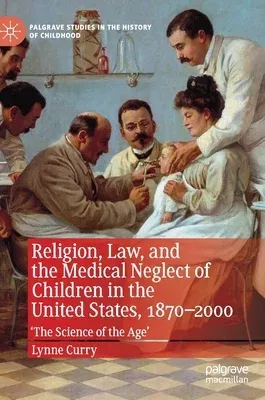Lynne Curry
(Author)Religion, Law, and the Medical Neglect of Children in the United States, 1870-2000: 'The Science of the Age' (2019)Hardcover - 2019, 24 August 2019

Qty
1
Turbo
Ships in 2 - 3 days
In Stock
Free Delivery
Cash on Delivery
15 Days
Free Returns
Secure Checkout

Part of Series
Palgrave Studies in the History of Childhood
Print Length
197 pages
Language
English
Publisher
Palgrave MacMillan
Date Published
24 Aug 2019
ISBN-10
3030246884
ISBN-13
9783030246884
Description
Product Details
Author:
Book Edition:
2019
Book Format:
Hardcover
Country of Origin:
NL
Date Published:
24 August 2019
Dimensions:
21.01 x
14.81 x
1.27 cm
ISBN-10:
3030246884
ISBN-13:
9783030246884
Language:
English
Location:
Cham
Pages:
197
Publisher:
Weight:
399.16 gm